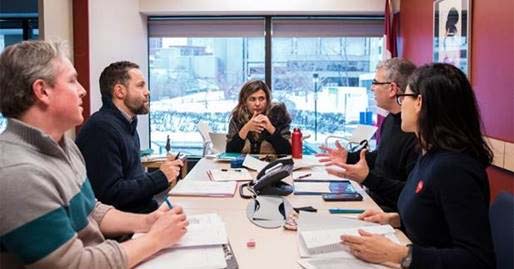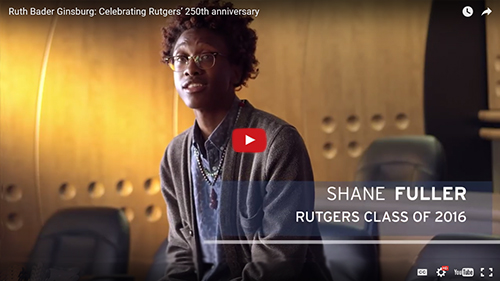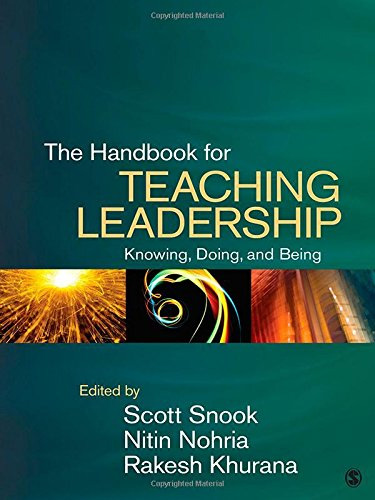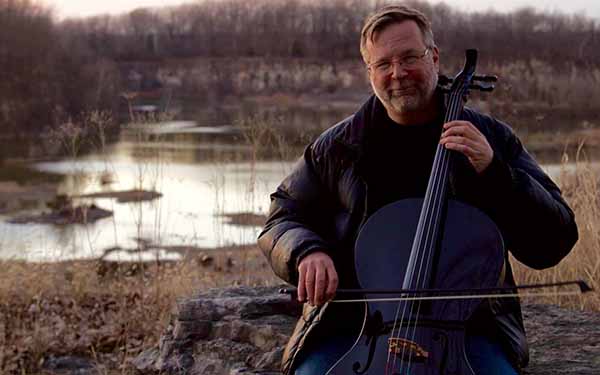 “The Academy’s training program is an exercise in consciousness-raising, introspection and self-discovery,” says Terry Skolnik, an assistant professor at the Faculty of Law, Civil Law Section who took the course in January 2021. “It has a lot to do with reflection, which in the end, naturally makes us better leaders. The course gets you to recontextualize things, so that you emerge from each meeting energized and productive. It has been one of my most striking life experiences and has changed my way of teaching and my day-to-day life.”
“The Academy’s training program is an exercise in consciousness-raising, introspection and self-discovery,” says Terry Skolnik, an assistant professor at the Faculty of Law, Civil Law Section who took the course in January 2021. “It has a lot to do with reflection, which in the end, naturally makes us better leaders. The course gets you to recontextualize things, so that you emerge from each meeting energized and productive. It has been one of my most striking life experiences and has changed my way of teaching and my day-to-day life.”
The course will bring together leading thinkers in human development, including Werner Erhard, Michael Jensen, Jeri Echeverria and Steve Zaffron, with a tradition of critical thinking in the humanities and the sciences developed by authors like Michel Foucault, Erich Fromm, Mary Parker Follett and Francisco Varela. Read The Full Article
Justice Ruth Bader Ginsburg and students of Rutgers speak of the tremendous opportunity the University offers and its revolutionary spirit. Rutgers student, Shane Fuller speaks eloquently of the Leadership Course at Rutgers, a course which “changed his life” and “made him realize you really can do anything.” The Erhard-Jensen Ontological/Phenomenological initiative supports this leadership course being taught at Rutgers and at over 25 Universities around the world. The Initiative is committed to supporting faculty members to lead this course. For more information
…
The Evolution of Transformational Education
In transformational learning we seek to become aware of our context of interpretations and beliefs, and to be critically reflective of our underlying assumptions. In transformational learning, our prevailing worldview and frames of reference (which are almost always invisible to ourselves) are uncovered thereby enabling us to reconstruct them such that more clarity and power is available to us.
In creating leaders we employ the ontological discipline (from the Latin ontologia “science of being”). The ontological model of leader and leadership opens up and reveals the actual nature of being when one is being a leader and opens up and reveals the source of one’s actions when exercising leadership. And, ontology’s associated phenomenological methodology (explained in 2. below) provides actionable access to what has been opened up. The being of being a leader and the actions of the effective exercise of leadership can be accessed, researched, and taught either:
1. as being and action are observed and commented on “from the stands”, specifically as these are observed by someone, and then described, interpreted and explained (third-person theory of), or
2. as being and action are actually experienced “on the court”, specifically as these are actually lived real-time (first-person experience of).
As a formal discipline, the “on the court” method of accessing being and action (that is, as being and action are actually lived) is named phenomenology.
In short, an epistemological mastery (a from-the-stands mastery) of a subject leaves one knowing. An ontological mastery (an on-the-court mastery) of a subject leaves one being. Of course the students themselves do not need to study ontology; they only require the access to being and the source of action that is provided by the ontological perspective. And, they don’t need to study phenomenology; they only need to be provided with the actionable pathway to the being of being a leader and the actions of effective leadership made available by the phenomenological methodology.
In this video Professor Michael C. Jensen discusses bringing the ontological / phenomenological model into education.
Integrity: When It’s Not Easy!
By Eric Edberg
Here’s a very real question: How do you honor your word about being on time when you’re in an environment in which you rarely, if ever, have control over being on time? When keeping your word, at least when it comes to being on time, literally is in the hands of other people?
There are so many moving parts in a prison, so many things that can go right and go wrong, and so little, it would seem, that hinges on something being done exactly on time. Several times a day, there is “count,” when all the offenders are counted, and if the number doesn’t add up, everything stops until things are sorted out. The men are called out for meals (“chow”) at seemingly arbitrary times. The guard on duty in the Chapel building where we have the class may be there 30 minutes before we are scheduled to start, or may arrive to unlock the building when, in theory, everyone is already supposed to be there. And then it takes her a while to start the process of having the guys called down from their dorms–so they have NO physical way of getting there on time.
As far as I can tell, no one else in the institution is playing an on-time game. The collective agreement, the culture, is nothing happens on time. People who have been around prisons longer than I have tell me this is simply the way it is. And here these guys and I are, trying to play a be-on-time integrity game.
A week ago tonight, the guard wouldn’t let one of the guys in. We don’t know why; from her point of view, it may have been because he was slightly later than the other guys. Or maybe she doesn’t like him. She has a reputation for being tough, and for being arbitrary, and for some of the guys, she shows up as sabotaging them.
On Thursday, he told us about his frustration at not being able to come in last Tuesday. He was just outside the door; he could see me. So close and yet so far!
What better reason could one want for not being there? He came as soon as he was called down. Someone with a gun wouldn’t let him in. That’s a pretty reasonable reason, right? How could a teacher in this situation sat anything other than, “It’s OK, I understand”?
It showed up for him like he hadn’t kept his word. Which he hadn’t. Doesn’t matter that it wasn’t his “fault” that he didn’t keep his word. He hadn’t kept it. So I led him through the process of restoring his integrity. He acknowledged he had a commitment to be there and wasn’t (we already knew the story). He asked us what impact it had on us. We missed him; it makes it more challenging to move the group through the process together when someone’s not there; I had had some worry about whether he was OK or not. Was there anything he could do to “clean up the mess”? Nope. We were all complete.
He remade his promise to be at every session on time. And he said that, to his surprise, he felt much better.
Wow. Now he was complete. Now he didn’t have to justify not being there. Now he could let go of blaming the guard. It was over.
That was powerful. Keeping his word had not been under his control. And it was still not keeping his word for him and that still had a cost and all he had to do was honor his word and the magic happened.
Driving home that night, I saw that I had inadvertently let all of us be resigned to this larger situation. We’d let the agreement to be on time evaporate because none of us control the circumstances over which we could be on time. We’d literally shrugged our shoulders and said, well, we’ll be here as soon as we can.
What else could we agree to? The cost of this hit me. We had each made a promise to be at every session on time. If a guard not letting him in had this impact on him, what was all this craziness with the start time having on the rest of us?
Seeing the cost revealed the opportunity. Like you, like me, to have their lives work, to create futures worth living into, these guys have got to clean up a LOT of stuff. In the course everywhere else we play the be-on-time game in part as a way to practice integrity, as well as to have things work.
Our workability has been compromised, no question.
Next session we started by honoring our word about being on time for every session. We recreated the power of the restoring-integrity conversation for those who weren’t there Thursday. I presented the opportunity for us to restore our integrity together by, as unreasonable as it might sound, honoring our word. I asked everyone who hadn’t been to every session on time to raise his hand–and each of us did.
We shared the impact this had on us: uncertainty, frustration, not knowing when we’d be able to finish the course, a possible conflict with a course starting in February, not finishing the course before being released. Lots of stuff that had gone acknowledged.
The fact that this lack of integrity of start time hasn’t been our “fault” blinded us from seeing the costs. And they were real.
That this world in which they live is in a state of quasi-chaos may explain it, but it doesn’t make it any easier. Acknowledging the costs was powerful for us. So now what? Do we remake our promise to be on time?
We did.
It’s unreasonable. It might not even be appropriate given “the circumstances in which we are acting.” Look at it, though. Outside of this physical prison, whenever we don’t keep our word there is ALWAYS a way to justify it. Certainly I always have a justification . . . even if it’s making myself wrong.
So we chose to do an experiment. If we are each going to be men of our word, then why not give it? Even when we know the circumstances are going to make it very challenging, perhaps impossible to keep it.
We agreed to remake our promise to be at every session on time.
If the people with the guns don’t let us keep our word, then we will honor our word by acknowledging to each other that we didn’t keep it, acknowledge the impact on us, and make a new promise.
It sounds kind of crazy to me, and it was my idea!
My commitment is that together we will use it to make a difference in our lives.
In two or three weeks, we may take another look and make a new agreement. Meanwhile, I want to see what we create for ourselves by making promises when all the circumstances seem to be lined up against us.
When you start climbing a mountain, sometime it looks insurmountable. People die sometimes, climbing mountains, because the climb is worth that much to them. We won’t die, that I know!



